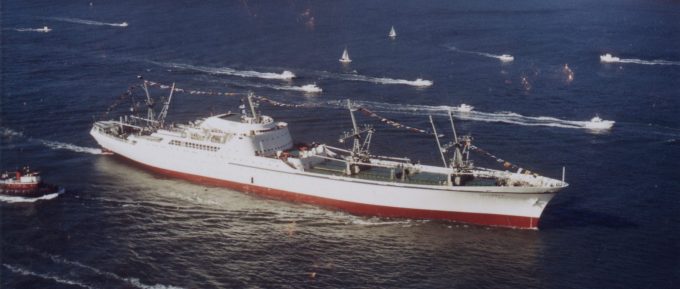Nuclear-powered containerships may be hitting the water sooner than we think
This week, classification society Lloyd’s Register announced a collaboration with ship designer Seatransport on a ...

This week, news emerged that a South-Korean shipyard, HD Korea Shipbuilding & Offshore Engineering (KSOE), is positioning itself as a prospective builder of nuclear-powered merchant vessels.
For a nuclear-powered containership, there would be many upsides.
As The Loadstar previously discussed in analysing the KUN-24AP, such a vessel would have an outsize market share advantage, with improved cargo capacity over a conventional ship of the same size; zero-emissions in operation; and a higher speed, increasing the sheer amount of sheer container-carrying work the ...
Comment on this article